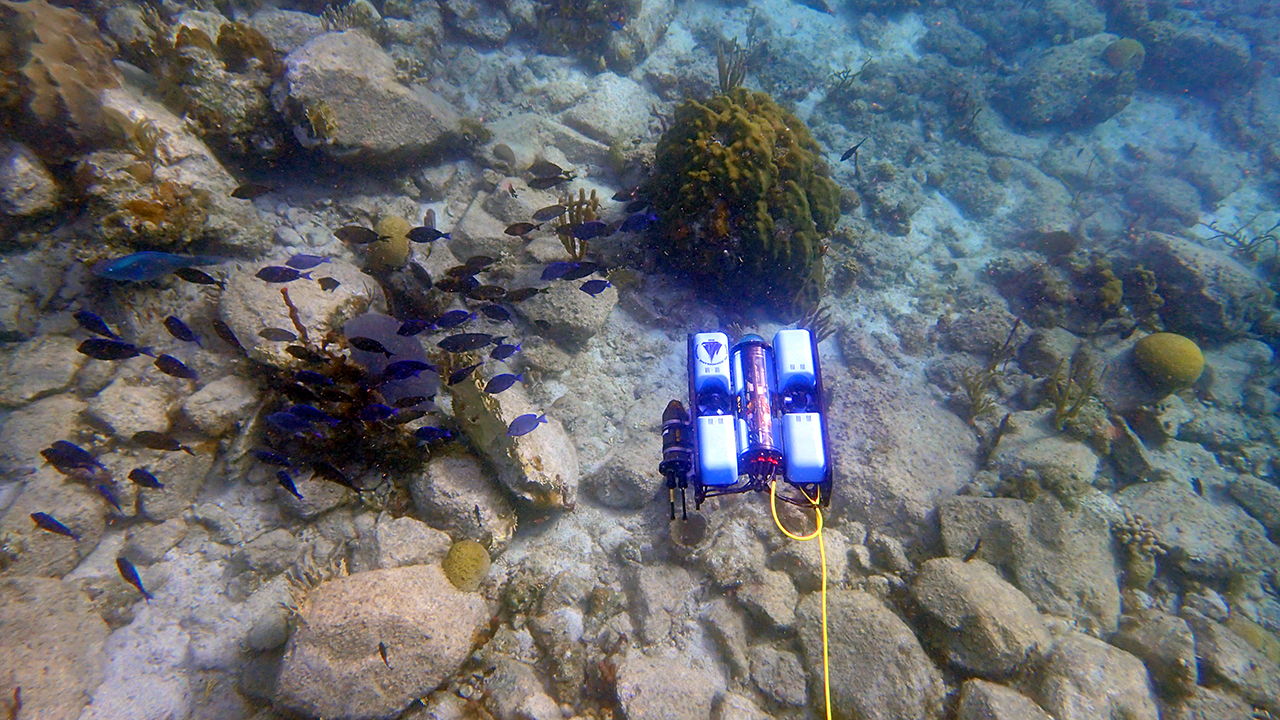
The oceans are the largest remaining unexplored frontier of Earth, and one where discoveries of scientific and commercial value are made regularly. The scale of the oceans makes exploring, characterizing, and monitoring them through manned underwater missions intractable, and the limitations of underwater localization and communications technology prohibits the use of many techniques commonly used in terrestrial and aerial autonomous robots.
This project pursues the development and application of unsupervised and semi-supervised machine learning algorithms to automate exploration of underwater environments. It will apply an unsupervised semantic mapping algorithm to distinguish different types of underwater regions (e.g. seafloor composition, species of fish) and identify anomalies (e.g. wrecks, hydrothermal vents) while exploring autonomously. It will then encodes this map into a compressed format to be transmitted to a scientist or other operator, who will be offered a means to specify how interested they are in specific types of regions or anomalies. Finally, the robot will plan and execute a path that maximizes the amount of information gathered based on the operator’s interests. This work is done in collaboration with Dr. Yogesh Girdhar and the WARPLab at the Woods Hole Oceanographic Institute (WHOI).